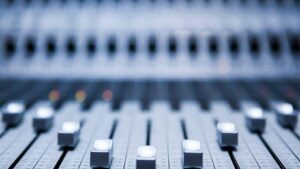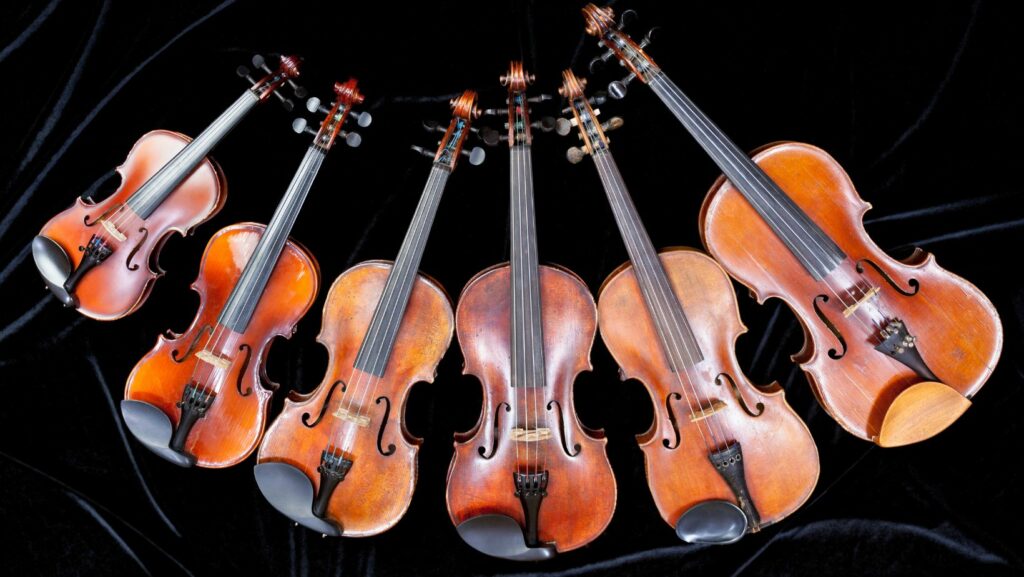Imagine a classroom where students are not just reading music scores, but creating their own symphonies with the aid of cutting-edge technology. The intersection of technology and music education is transforming the way we learn and appreciate music.
This revolution isn’t confined to just classrooms. It’s reshaping music education at every level, from grade school to professional training programs. From interactive apps to virtual reality, technology is opening new doors for music education.
In this digital age, the melody of music education is being rewritten. Let’s delve into how technology is hitting the right notes in music education, and why it’s a trend that’s here to stay.
Technology in Music Education
 The footprint of technology in music education isn’t only prominent; it’s transforming how music is consumed, analyzed, produced, and taught. Its influence extends over a variety of sectors within music education, enhancing learning experiences and broadening accessibility.
The footprint of technology in music education isn’t only prominent; it’s transforming how music is consumed, analyzed, produced, and taught. Its influence extends over a variety of sectors within music education, enhancing learning experiences and broadening accessibility.
Technology powers tools that enhance learning experiences in music education. Software for music production, like GarageBand, lents aspiring musicians the ability to compose, edit and produce music. Educational apps, for example, Yousician and Simply Piano, offer interactive lessons that provide immediate feedback, nurturing self-study. Digital sheet music platforms, such as MuseScore, give students instant access to a vast music repertoire and learning materials. Virtual Reality (VR) opens the door to immersive music experiences, turning passive listeners into active participants, allowing them to visualize sounds and the structure of music pieces. These technological tools provide a multi-faceted approach to music education, thereby amplifying learning quality.
Broadening Accessibility
Technology is instrumental in diminishing barriers in music education by broadening accessibility. Online platforms provide learning materials, courses, and tutorials to anyone with an internet connection, liberating learning from geographical constraints. Powerful low-cost or free mobile apps democratize music production, allowing individuals of all economic backgrounds to create music.
Key Technologies Transforming Music Education
 As the digital age advances, certain key technologies play pivotal roles in remodeling music education, emanating from previous discussions on the overarching influence of technology in the field. These encompass educational apps and software, as well as online platforms and virtual reality.
As the digital age advances, certain key technologies play pivotal roles in remodeling music education, emanating from previous discussions on the overarching influence of technology in the field. These encompass educational apps and software, as well as online platforms and virtual reality.
Educational apps and software offer an innovative dimension to music education. Yousician, for example, serves as an all-in-one app for learners of guitar, piano, bass, ukulele and singing. It guides the learning process, monitors progress, and gives instant feedback. Music production software, like GarageBand, empowers students to create their own compositions. Noteflight, another significant tool, allows users to write, view, and share music notation, fostering active involvement in understanding and composing music. Equally important is SmartMusic, an application that provides an expansive library of sheet music and practice tools, enhancing students’ skills and music understanding.
Benefits of Technology in Music Education
 Technology contributes markedly to student engagement in music education. It invigorates the learning environment, making it interactive and engaging. For example, music production software like GarageBand increases student interaction with music, allowing them to create, mix, and manipulate sound. This immerses them in the learning process, fostering motivation and interest. Similarly, virtual reality (VR) music experiences, such as Tribe XR’s DJ School, offer immersive experiences, thereby enhancing appreciation for musical arts. Furthermore, digital sheet music platforms facilitate learning by providing a broad range of musical genres to discover and explore, serving both as an educational resource and a source of inspiration.
Technology contributes markedly to student engagement in music education. It invigorates the learning environment, making it interactive and engaging. For example, music production software like GarageBand increases student interaction with music, allowing them to create, mix, and manipulate sound. This immerses them in the learning process, fostering motivation and interest. Similarly, virtual reality (VR) music experiences, such as Tribe XR’s DJ School, offer immersive experiences, thereby enhancing appreciation for musical arts. Furthermore, digital sheet music platforms facilitate learning by providing a broad range of musical genres to discover and explore, serving both as an educational resource and a source of inspiration.
Personalizing educational paths is another advantage of technology in music education. With various educational apps available, such as Yousician, students can follow their own pace and adopt their chosen learning style. The flexibility afforded by technology enables learners to customize their learning journey, catering to their specific interests, skill levels, and goals. For instance, Yousician allows learners to choose their instrument, follow a structured path or select individual songs, and receive immediate feedback, all of which contribute to a tailor-made and result-oriented learning experience. In addition, Massive Open Online Courses (MOOCs) provide opportunities for personalized and self-paced learning, offering courses and lessons from institutions worldwide. With such rich and diverse resources, technology democratizes music education, making personalized learning paths feasible and accessible to all.

